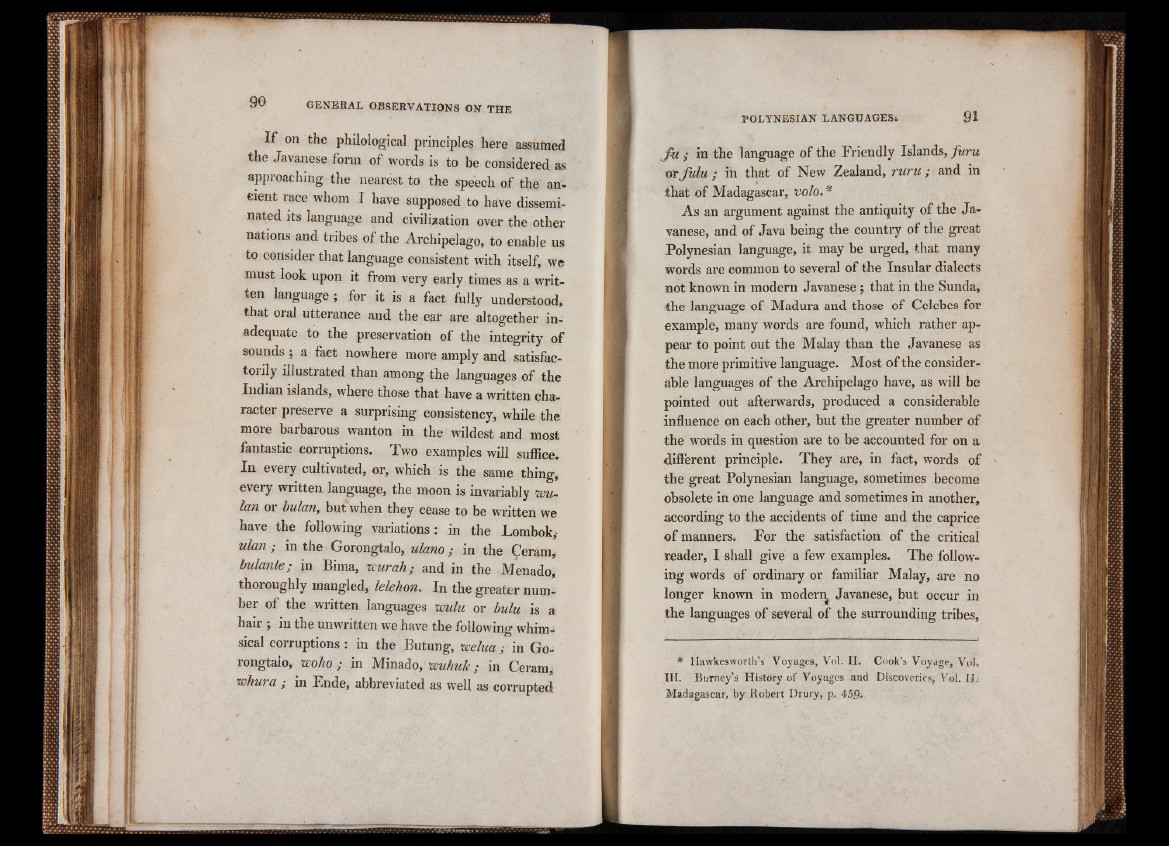
If on the philological principles here assumed
the Javanese form of words is to be considered as
approaching the nearest to the speech of the ancient
race whom I have supposed to have disseminated
its language and civilization over the other
nations and tribes of the Archipelago, to enable us
to consider that language consistent with itself, we
must look upon it from very early times as a written
language; for it is a fact fully understood,
that oral utterance and the ear are altogether inadequate
to the preservation of the integrity of
sounds ; a fact nowhere more amply and satisfactorily
illustrated than among the languages of the
Indian islands, where those that have a written character
preserve a surprising consistency, while the
more barbarous wanton in the wildest and most
fantastic corruptions. Two examples will suffice.
In every cultivated, or, which is the same thing,
every written language, the moon is invariably <wu-
lan or bulan, but when they cease to be written we
have the following variations: in the Lombok,
ulan ; in the Gorongtalo, ulano; in the Ceram,
bulante; in Bima, a-urah; and in the Menado>
thoroughly mangled, lelehon. In the greater number
of the written languages >wulu or bulu is a
hair ; in the unwritten we have the following whimsical
corruptions: in the Butung, welua j in Gorongtalo,
woho ; in Minado, wuhuk; in Ceram,-
whura ; in Ende, abbreviated as well as corrupted
fu ; in the language of the Friendly Islands, furu
or fulu ,* ih that of New Zealand, tutu ; and in
that of Madagascar, volo. *
As an argument against the antiquity of the Javanese,
and of Java being the country of the great
Polynesian language, it may be urged, that many
words are common to several of the Insular dialects
not known in modern Javanese ; that in the Sunda,
the language of Madura and those of Celebes for
example, many words are found, which rather appear
to point out the Malay than the Javanese as
the more primitive language. Most of the considerable
languages of the Archipelago have, as will be
pointed out afterwards, produced a considerable
influence on each other, but the greater number of
the words in question are to be accounted for on a
different principle. They are, in fact, words of
the great Polynesian language, sometimes become
obsolete in one language and sometimes in another,
according to the accidents of time and the caprice
of manners. For the satisfaction of the critical
reader, I shall give a few examples. The following
words of ordinary or familiar Malay, are no
longer known in modern Javanese, but occur in
the languages of several of the surrounding tribes,
* Hawkesworth’s Voyages, Vol. II. Cook’s Voyage, Vol.
III. Burney’s History of Voyages and Discoveries, VoL ID
Madagascar, by Robert Drury, p. 459.